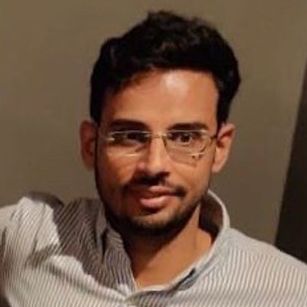Akinyi Ochieng, currently studying MA Gender & Development at IDS, is a Chevening scholar and a mother of two. In this blog post, Akinyi shares the emotional reality of balancing motherhood with full-time study—reflecting on the overwhelming guilt of being away from her children for the first time, and the strength and support she has found in the IDS community.

Passion to make a difference: the journey to IDS
I’m a mother of two—a preteen and a teen—a wife, and a caregiver to my mom. I also serve the community in various ways, from working with the Justice and Peace Commission at my church to acting as a Children’s Wellbeing Ambassador. I have always been passionate about making a difference.
This passion has driven me to lead the project TeenTalk Table, which focuses on empowering parents to foster a sex-positive culture at home. This work led to an award in 2023 from the American Association of Sexuality Educators and Therapists, and a scholarship to pursue certification as an international sexuality educator.
When the opportunity arose to pursue a Master’s in Gender and Development at IDS through the Chevening Scholarship, I knew I was going to move forward with it. My journey here at IDS allows me to fulfil the desire to confront and address the power imbalances affecting women and girls in my society.
It had been years since I was last in school, so I came in as a blank canvas. I didn’t stress too much about balancing motherhood and studies at first. I simply committed to staying connected to my children and adapting to everything else with flexibility. Though I arrived later in life than I expected, I came ready to learn.
Embracing the challenges and growth
One of the hardest challenges has been learning to give myself grace, especially when it comes to overcoming the constant pull of “mum guilt.” This is my first time living away from my children, and the weight of that reality hit hard. There’s this unwritten rule that as mothers, we should always be present, always available, and always put our children first. It’s a deeply ingrained mindset, one that takes time to unravel.
At first, the guilt was overwhelming. It took me a while to come to terms with it—to realise that wanting to better myself, to learn, and to grow is not something to apologise for.
I still feel the pull sometimes, that guilt lurking in the background. It’s not something that goes away entirely. But what has shifted is the understanding that I don’t have to be perfect. That it’s okay to take a step back, to focus on myself, to pursue my passions, and to be a student without feeling like I’m falling short as a mom.
For me, the biggest transformation wasn’t just about time management or resilience, but in how I began to see the world. Not just through my own lens, or even through the lens of other women from my community, but through the incredibly diverse, textured, and sometimes contrasting lenses of people from all over the globe.
I found myself sitting in classrooms with voices from every corner of the world. Each conversation, each shared story, opened up a window into a different reality—one shaped by culture, politics, history, and lived experience. It was humbling. And it was beautiful.
This journey taught me to hold multiple truths, to sit with discomfort, and to be more curious than certain. I’ve stopped thinking in straight lines. I now see how motherhood and scholarship, activism and academia, all intertwine.

Support, community, and moving forward
The IDS community has been incredibly supportive. From the start, I felt seen—not just as a student, but as a whole person. I met other mothers in the programme, each of us juggling lectures with care responsibilities. We created a circle of strength, offering each other encouragement, sharing stories, tissues when needed, and countless reminders that we are enough.
The support didn’t end with peers. The lecturers also created a space that was deeply human. It never felt like a rigid or cold academic environment. It felt like a place where reflection was just as valued as theory, where lived experiences weren’t left at the door but welcomed into the room.
As a mother, I know what it feels like to be questioned for choosing education. To be made to feel guilty for stepping away from home—even temporarily—to invest in yourself. But at IDS, I was never made to feel like I had to justify my presence. No one asked why I wasn’t home with my children. Instead, I felt celebrated for choosing growth. I was seen, not judged.
A message to students who are also mothers
If I could offer one piece of advice to myself before starting this course, it would be this: don’t chase perfect balance. Just be present. Life doesn’t divide neatly. Some days, your heart will be with your children. On other days, you’ll be fully captivated by theories and discussions. Both are valid. Both matters.
At IDS, I found the freedom to be my full self. This is a space where you don’t have to choose between your dreams and your responsibilities. Where your motherhood is not a limitation but a strength. There were so many moments in classrooms, during group projects, and even over quiet coffee chats, where being a mom enriched my perspective. It wasn’t something to conceal—it was something to bring forward, proudly.
So to you—future mum, current mum, future student of IDS—know this: IDS is more than a school. It’s a space where you don’t have to choose. Where your motherhood isn’t a side note, but a powerful part of the story you carry into every room. And by stepping into both worlds, bravely and boldly, you’re not just shaping your future—you’re helping others reimagine what’s possible too.
To find out more about postgraduate study and information on scholarships at IDS, sign up to our Learn newsletter.


